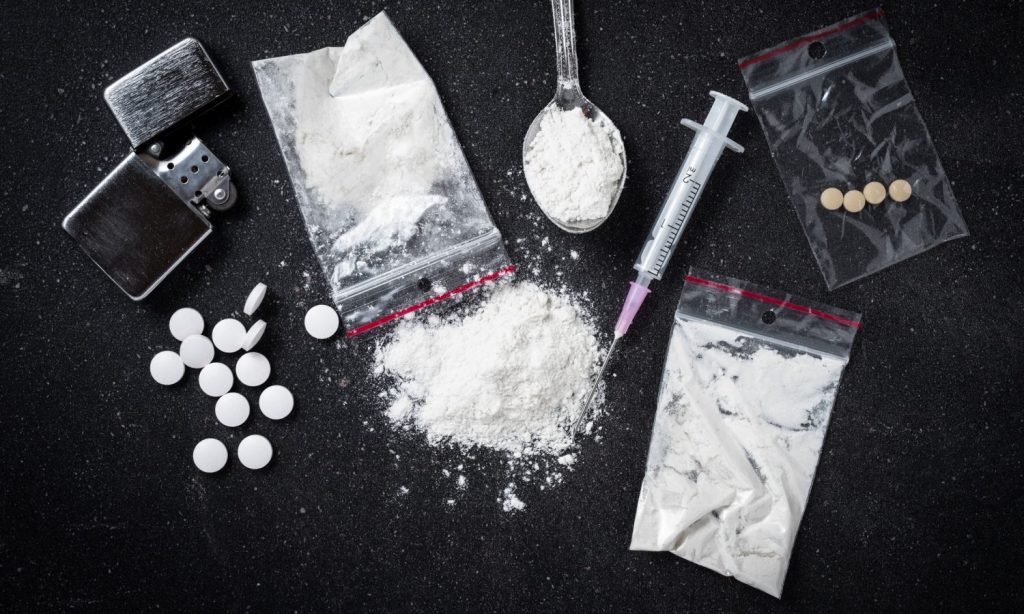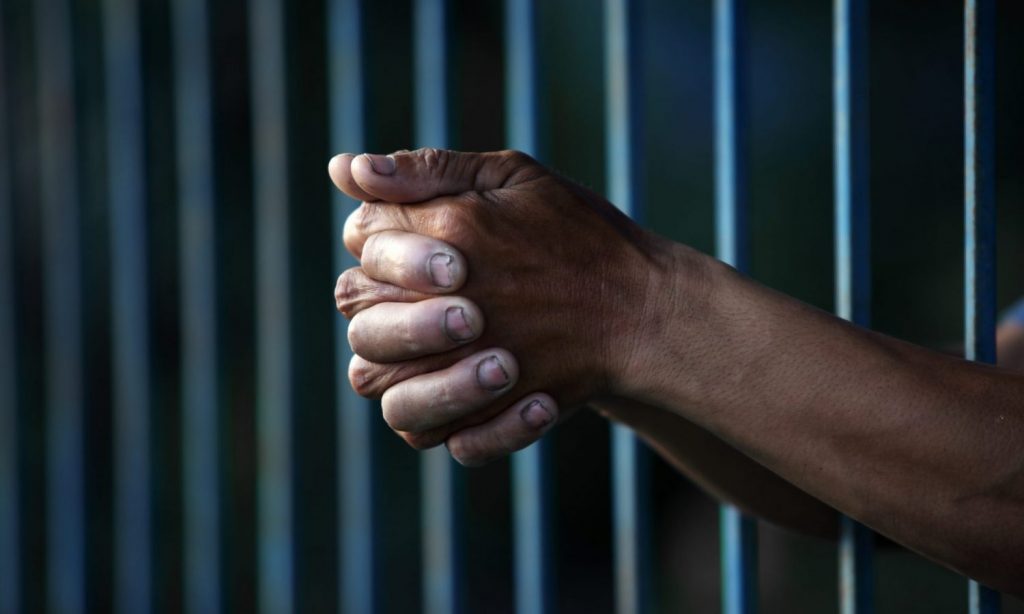It is time for President Biden to face the reality of his role and the role of his colleagues and predecessors in advancing of the drug war.
The War on Drugs, not the war in Afghanistan, is America’s longest war. It has used trillions of American taxpayer dollars, militarized American law enforcement agencies (federal, state, and local), claimed an untold number of lives, railroaded people’s futures (especially among Black, Latino, and Native populations), and concentrated the effort in the country’s most diverse and poorest neighborhoods.
The War on Drugs has been a staggering policy failure, advancing few of the claims that presidents, members of Congress, law enforcement officials, and state and local leaders have sought to achieve. The illicit drug trade thrived under prohibition; adults of all ages and youth had access to illicit substances. Substance use disorders thrived, and policymakers’ efforts to protect public health were fully undermined by policy that disproportionately focused, if unsuccessfully, on public safety.

It is time for an American president to think seriously about broad-based policy change to disrupt the manner in which the United States deals with drugs.
Despite its dramatic policy failures, the War on Drugs has been wildly successful in one specific area: institutionalizing racism. The drug war was built on a foundation of racism and xenophobia. As I have written in Marijuana: A Short History, the historical foundation of drug policy in the United States was to vilify African Americans, Native Americans, immigrants from Asia and Mexico, and other out groups, and to turn White America against each. Michelle Alexander and numerous others have effectively highlighted how America’s criminal justice system from arrest to trial to incarceration to post-release conditions disproportionately punish people of color, creating a cycle of harm in their communities.
We know the design and enforcement of America’s drug laws were racist in intent and in practice. The Anti-Drug Abuse Act of 1986 enacted penalties for possession of crack cocaine (a substance predominantly used by poor and minorities users) that were 100 times higher than for the possession of powder cocaine (a substance used more often by wealthier, white users). And while Congress in 2010 reduced that disparity in penalties from 100 to 1 to 18 to 1, and in 2018 President Trump signed a law making that change retroactive, thousands of low level offenders were left out from resentencing because of a loophole. And in 2021, the U.S. Supreme Court refused to extend the retroactive resentencing effort for those low-level offenders.
In addition, research shows that Black and wWhite Americans use cannabis at roughly the same rates. However, Black Americans are more than 3.6 times more likely to be arrested for a cannabis offense than are wWhite Americans. And even in states that have reformed their cannabis laws, the institutionalization of racism in police departments’ enforcement of the drug war sustains, as Blacks are more than two times as likely as whites to be arrested for cannabis offenses in those legal jurisdictions. And while cannabis offenses have plummeted in those states, the impact of those remaining arrests and convictions are felt in an outsized way across Black and Brown America and in Native communities.
The 2018 law mentioned above was titled the First Step Act. This label was fitting in that it described the long road toward broader criminal justice reform and for justice in the communities that the War on Drugs targeted for decades. And in his 2019 State of the Union Address, President Trump praised that bill becoming law, by noting that it addresses the explicit racism in the American criminal justice system. He noted:
“This legislation reformed sentencing laws that have wrongly and disproportionately harmed the African American community. The First Step Act gives nonviolent offenders the chance to reenter society as productive, law-abiding citizens. Now States across the country are following our lead. America is a nation that believes in redemption.”
President Trump was right that America believes in redemption, but only in theory. It rarely advances redemption in practice. Every president in the 20th and 21st centuries helped perpetuate, in some way, a drug war with one “crowning achievement”: systematically harming minority communities in America with intent and malice. Supporters of prohibition, be they presidents or other elected officials, advocates, law enforcement leaders, or everyday citizens wrap themselves in a mystical cloak of “protecting the children” and “keeping communities safe.” In reality, that hypocrisy has sought simply to protect white children (a failed effort) and to keep white communities safe (another missed target).

If prohibition supporters cared deeply about children and the safety of communities, they would look at what the War on Drugs have done to Black and Brown children and communities and be sickened. They would see families divided, young people (especially young Black men) have dreams dashed and future opportunities restricted, communities rocked by gang and police violence, systematic underinvestment with simultaneous over-policing in cities, and dozens more disastrous consequences because of their failed drug policies. Prohibition supporters from Main Street to Pennsylvania Avenue should consider how the drug war has harmed specific American communities and recoil, but instead, they ignore reality and refuse to advance legitimate alternatives.
RELATED: We Need To Recognize That The War In Afghanistan Is Not Our ‘Longest War’
It is time for President Biden to face the reality of his role and the role of his colleagues and predecessors in advancing of the drug war. He must consider vast reforms — some which require the cooperation of Congress and others than can be implemented via executive action — that deal with drug policy in a thoughtful and reasoned, rather than anachronistic and heartless way. Mr. Biden must realize that choices about drug reform—pardons, sentencing reform policy, the expansion of mental health and addiction services, cannabis legalization, police reform, prison reform, community reinvestment—should not focus on whether those reforms come without costs. Mr. Biden must compare whether those reforms are a policy improvement over the status quo: prohibition.
RELATED: Al Harrington, Drake, Killer Mike Ask Pres. Biden To Pardon All Non-Violent Cannabis Offenders
Too often elected officials, policy analysts, advocates, and citizens hide behind the cowardice of highlighting the challenges that drug reform can potentially cause, while refusing to speak and think bravely about the comprehensive failures and harms perpetuated by current policy. Mr. Biden can no longer do what he and his predecessors have done: sit idly by, awaiting a perfect policy to replace the unmitigated failures of the War on Drugs. A significant part of the electoral coalition that swept Mr. Biden to the Democratic presidential nomination and eventually to the White House were Black, Latino, and Native Americans who have been harmed the most by the War on Drugs.

Part of that solution must be an embrace of full-scale criminal justice reform that works to inject fairness into a system that has, for centuries, disproportionately punished people of color, the poor, the undereducated, those without personal or political connections, and any others in our society who fall on hard times. Drug reform — and particularly cannabis reform — must sit at the forefront of the president’s efforts to chase the type of justice that has eluded so many for so long.
Legalizing cannabis, focusing broader drug reform efforts around public health policy rather than inhumane criminalization, prioritizing law enforcement funds toward violent crime rather than petty crime, coordinating an intergovernmental effort to harmonize criminal justice reform through legislative and executive efforts, and reinvesting in the communities that our government has targeted and persecuted are a requirement for President Biden to be the humane and justice-oriented president he marketed himself to be in the 2020 campaign.
Eight months into this administration, Mr. Biden faces an embarrassing reality with regard to drug policy. Donald Trump, who received only 8% of the Black vote in 2016, did more as president to change drug policy and ameliorate the effects of the drug war for communities of color than has Joe Biden, who won 87% of Black support in 2020.
In the same way this president took the bold step of ending America’s second longest war in Afghanistan, he should take the equally bold step of ending America’s longest war: the War on Drugs.


